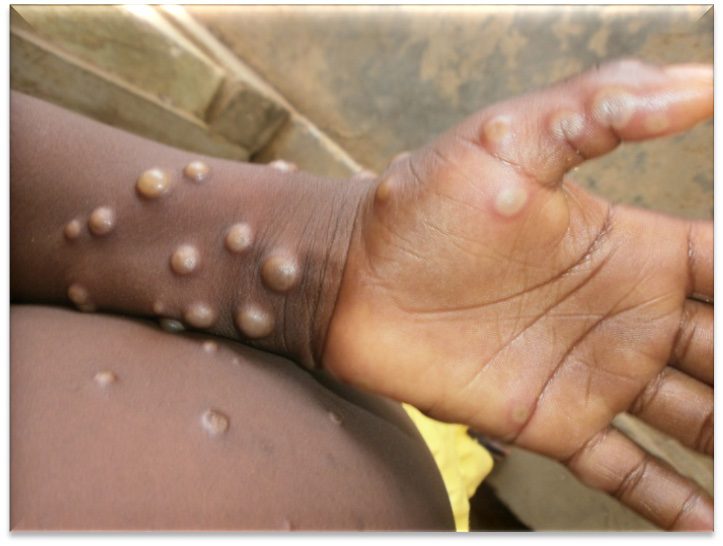Local Universities Prep for Potential Monkeypox Outbreaks
By • August 22, 2022 One Comment 1495

As thousands of college students from all over the world move into Washington, D.C., college dorms and apartments this week, many are becoming aware of a new health threat: monkeypox. D.C. has the most monkeypox cases per capita in the nation. While there is no specific college data yet, both Georgetown University and American University have reported presumptive cases of monkeypox among accepted students.
“It looks very serious and scary,” student Alejandra Ramirez said in a George Washington University Press release. “It’s very visible, unlike COVID. We need to be more aware of the risk and be more proactive.”
Human monkeypox is a rare disease that is in the same family as smallpox, according to the Centers for Disease Control and Prevention. The illness can be spread in multiple ways such as through bodily fluids, contaminated materials including clothing and linens and direct skin-to-skin contact with skin lesions or large respiratory droplets after close, personal, and/or intimate contact with an individual infected with the virus. Currently the disease is concentrated among men who have sex with men. However, it is not a sexually transmitted infection and sexual contact is not required for transmission, according to the CDC. Any person can be susceptible to the virus.
Monkeypox symptoms include fever, body aches, chills, exhaustion, swelling of the lymph nodes and a rash that can start on the face and later spread to other parts of the body, according to public health experts. A monkeypox rash can look like pimples or blisters on the face. Some people can get a rash first that is later accompanied by other symptoms while others only develop a rash.
University officials are concerned that gay men could be stigmatized by the disease. Advocates have requested that questions about sexual behavior be eliminated from vaccine applications, to prevent those at risk from not wanting to sign up for a vaccination.
“On campus the risk of monkeypox transmission is very low,” American University Student Health Center Director Dr. David Reitman wrote in an email last week. “With proper safety precautions, there is no need for elevated concern. Monkeypox is less contagious and less likely to result in severe illness or death than COVID-19. The possibility of becoming infected by interacting with someone with monkeypox, particularly in classroom settings and normal daily activities is low.”
There are no monkey-pox specific vaccines, however, smallpox vaccines do work but they are in short supply.
The D.C. Department of Health defines eligibility for monkeypox vaccines as being a District resident 18 years of age or older who meets at least one of three requirements: all people of any sexual orientation or gender, who have had multiple sexual partners in the last two weeks, including those considered highest risk—gay, bisexual and other men who have sex with men, transgender men and transgender women, sex workers (of any sexual orientation or gender) or staff (of any sexual orientation or gender) at establishments where sexual activity occurs (e.g., bathhouses, saunas or sex clubs).
On Wednesday, the White House named monkeypox a public health emergency, as more than 6,600 cases have been recorded so far in the United States. According to the CDC, there are over 30,000 confirmed cases in the nation. The World Health Organization declared it a “Public Health Emergency of International Concern.”
“The best steps you can take regarding monkeypox, COVID-19, and other health matters is to practice good health hygiene, stay home if you are not feeling well, contact your medical provider if you have symptoms, and wear a mask in appropriate settings,” Reitman wrote.
The vaccine isn’t available to all yet, but students and parents say they’re taking it in stride.
“The individuals, who live off campus, are isolating and recovering well, and we are providing support,” Reitman added.


thanks for info